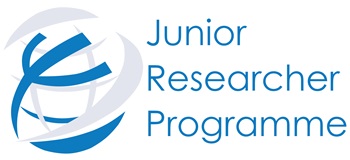jSchool 2024
Following the success of previous jSchools, jSchool 2024 will return to the Certosa di Pontignano in Siena, Italy from the 7th to the 13th July. Students will get the chance to kick-off their group research studies, supported by their Research Supervisors and JRP Team Members, as well as enjoying sunny Tuscany.
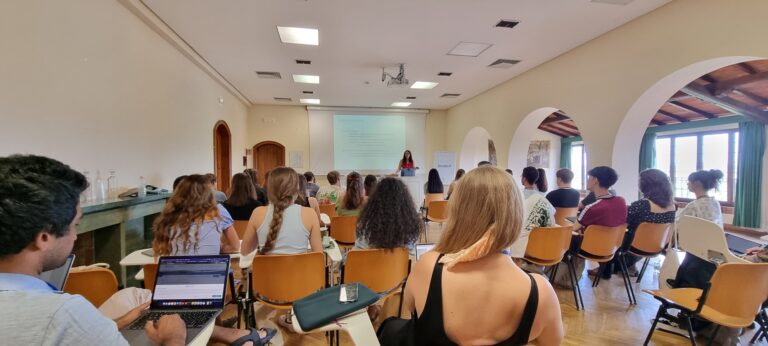
Student applications are open – Apply now!
Take the opportunity to apply by filling out the application form.
Before proceeding, we suggest using our eligibility checker to ensure you meet the requirements for the programme. Additionally, we highly recommend reading our student application guide for detailed information on the application. We are looking forward to reading your application!
Student applications are being accepted until May 1st, 2024!
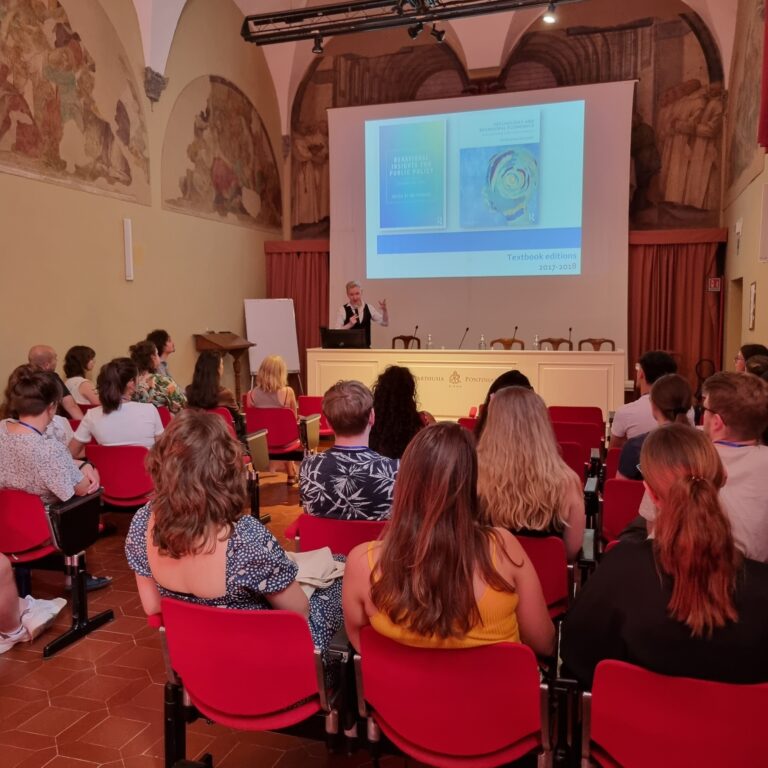
If you have any further questions, you are very welcome to contact us at jschool@pscholars.org.
We are also hosting two Q&A sessions on Zoom for any questions you might want to ask us directly.
We are hosting two sessions to accommodate more people and take time zones into account, but they will otherwise be the same.
The first session will be held on Saturday, 13th April, at 5 pm CEST. You can register for it using this Zoom Meeting Registration.
The second session will be held on Saturday, 27th April, at 11 am CEST, and you can register for it using this Zoom Meeting Registration.


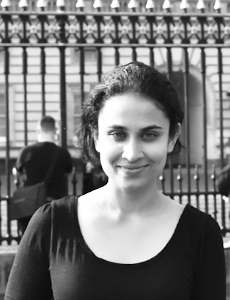
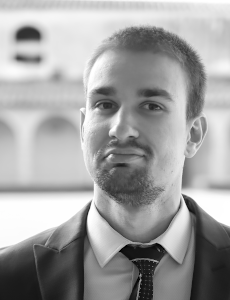




jSchool offers the chance to gain valuable experience in designing cross-cultural research in small groups under supervision of early-career researchers. The event is a platform for psychology students to conduct research in an international setting and in their field of interest, with the aim of producing meaningful insights suitable for publication in scientific journals.
Theme
The theme of this jSchool is Economy of Well-Being: Harnessing Behavioral Science for Resilient Societies. This theme was carefully selected to allow jSchool participants to apply their skills to a diverse range of pressing psychological challenges and research areas.


Venue
The Certosa di Pontignano is a 14th Century mansion in the very heart of the Chianti countryside. The site, also denominated as the Pearl of the Sienese Chianti, brings together nature, history, and hospitality, whilst incorporating perfect spaces for study groups, needed for the students to lay the grounding blocks for their team projects, and to form strong friendship and collaborative bonds.
The location offers multiple green spaces, ideal for social events and moments of relaxation. Its natural silence, and its proximity to Italy’s capital cultural cities, Siena and Florence, give the summer school participants the chance to both enjoy a stroll through the Chianti vineyards, and appreciate the frenetic Italian city life.
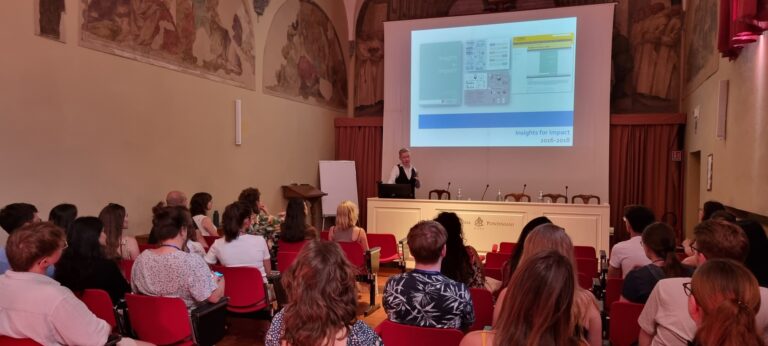
Please note
The JRP Team has every intention to run this event in person. Having learned from the COVID-19 pandemic we will closely follow any changes in epidemiological developments as well as all national/international travel and event guidelines. This means that under extreme circumstances – such as a pandemic or local emergency situation – the JRP Team may decide to substitute the planned in-person event with a virtual jSchool, allowing students and supervisors to stay safe and participate from the comfort of their home.
Please note that we expect participants to follow applicable public health guidelines and measures, as applicable.
Projects & Supervisors
For jSchool 2024 we have five Supervisors with five different projects. Click between the five to read more about the projects and the supervisors:
Mansplaining and more: Development and cross cultural validation of the Workplace Gender Competency Questioning Scale (WGCQS)
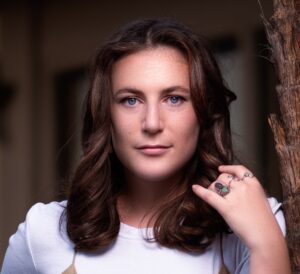 The infamous “mansplaining” is just one type of gender competency questioning (GCQ), which refer to communication behaviors that indicate doubts about a woman’s competence based on underlying gender stereotypes. While mansplaining, or condescending explanations, is by far the most discussed dimension, it constitutes only one of the three dimensions that comprise the construct GCQ, alongside voice non-recognition (manscluding) and intrusive interruptions (manterrupting). Although well known in popular culture, little research has investigated GCQ. Due to its novelty, there is currently no scale for measuring all three types of GCQ. This study aims to develop and validate a scale for workplace GCQ cross culturally, explore GCQ’s work-related consequences for women and examine differences and similarities of GCQ experiences and effects across cultures.
The infamous “mansplaining” is just one type of gender competency questioning (GCQ), which refer to communication behaviors that indicate doubts about a woman’s competence based on underlying gender stereotypes. While mansplaining, or condescending explanations, is by far the most discussed dimension, it constitutes only one of the three dimensions that comprise the construct GCQ, alongside voice non-recognition (manscluding) and intrusive interruptions (manterrupting). Although well known in popular culture, little research has investigated GCQ. Due to its novelty, there is currently no scale for measuring all three types of GCQ. This study aims to develop and validate a scale for workplace GCQ cross culturally, explore GCQ’s work-related consequences for women and examine differences and similarities of GCQ experiences and effects across cultures.
Miren Chenevert
Miren Chenevert is an American PhD student completing her doctorate in cognitive sciences at the University of Trento in the beautiful Alps of Italy. Having graduated from an international masters program and living abroad, she strongly values the insight and creativity that comes from conducting research in multicultural teams. Her specialization is in work, organizational and personnel psychology, a specific type of social psychology, where she researches the gendered nuances of workplace mistreatment and its effects.
Should I change? Others do not. The role of perceived social norms when behavioral change is urgent
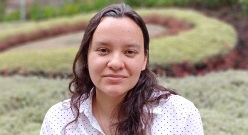
More and more, we hear that resilient societies are key in times of crisis. Yet in many settings, resistance to change seems to be the rule, rather than the exception. This project focuses on understanding how the perception of resistance affects our tendency to adopt a change, using psychological experiments. The results can contribute to the development of appropriate strategies to foster large behavioral change in various relevant settings.
Dr Claudia Patricia Estévez Mujica
Dr. Claudia Estévez Mujica is a psychologist and industrial engineer at the Universidad Javeriana with a Master’s degree in Organizations and a Ph.D. in Psychology. In line with her background, her research interests lie in the intersection of various disciplines combined with the purpose of understanding individual behavior in collective settings.
Do as I say, not as I do: Environmental self-silencing and feelings of hypocrisy

Despite widespread concern, people rarely talk about environmental issues. Why do people self-silence? The present project examines whether the fear of being decried as a hypocrite hinders conversations, particularly about personal behaviour changes, compared to those about system-level changes. Discussing the need for personal behaviour changes spotlights one’s own actions, risking hypocrisy accusations, which carry negative social consequences. Discussing system change, on the other hand, shifts focus away from personal responsibility. Understanding environmental self-silencing helps overcoming it, which promotes environmental resilience by engaging societies in dialogue.
Tabea Hoffmann
Tabea Hoffmann is a PhD student at the University Groningen. With a background in psychology, she currently conducts interdisciplinary research on pro-environmental change. Tabea’s research focuses on developing theory and behavioural interventions that recognize the social and collective nature of climate action.
Nudging vs boosting: how to support financial multi-attribute decisions with the use of behavioral interventions
 Have you ever considered what aspects people prioritize when making financial decisions like saving, investing, or getting insurance? This project aims to identify the key attributes that influence decision-making in financial contexts and explore ways to enhance these decisions through some of the most prominent behavioral interventions of recent times: nudging and boosting. The findings from this project could provide deeper insights into financial decision-making processes and help determine the efficacy of various behavioral strategies in altering behaviors. By doing so, we aim to broaden our understanding of nudging and boosting techniques and their application in public policy and business sectors.
Have you ever considered what aspects people prioritize when making financial decisions like saving, investing, or getting insurance? This project aims to identify the key attributes that influence decision-making in financial contexts and explore ways to enhance these decisions through some of the most prominent behavioral interventions of recent times: nudging and boosting. The findings from this project could provide deeper insights into financial decision-making processes and help determine the efficacy of various behavioral strategies in altering behaviors. By doing so, we aim to broaden our understanding of nudging and boosting techniques and their application in public policy and business sectors.
Jakub Krawiec
Jakub M. Krawiec is a psychologist and researcher, pursuing PhD at SWPS University, Warsaw. He previously held visiting research engagements at the Policy Research Group, University of Cambridge and the Cultural Selection & Behavioral Economics Lab at Metropolitan University of Oslo. His freelance research collaborations include UNICEF, Bayer, and Warsaw Stock Exchange.
Building resilient societies: Cross-cultural implementation of the online suicide prevention tool iAlive
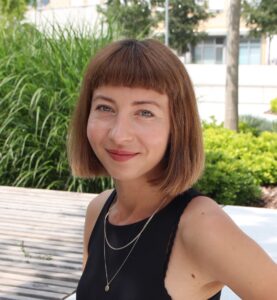 Addressing suicide, a significant global public health concern, requires empowering communities to identify and engage with individuals experiencing suicidal thoughts. With that aim, an evidence-based online tool iAlive was developed and evaluated in Slovenia. The main objective of this project is to implement and adapt the tool in different linguistic contexts and to evaluate its effectiveness by conducting a non-randomized controlled study.
Addressing suicide, a significant global public health concern, requires empowering communities to identify and engage with individuals experiencing suicidal thoughts. With that aim, an evidence-based online tool iAlive was developed and evaluated in Slovenia. The main objective of this project is to implement and adapt the tool in different linguistic contexts and to evaluate its effectiveness by conducting a non-randomized controlled study.
Nina Krohne
Nina Krohne is a PhD candidate in the Suicidology and Mental Health doctoral program at the University of Primorska, Slovenia. Her doctoral research focuses on examining suicidality in women who experienced intimate partner violence, with an emphasis on resilience. She is completing her PhD as part of her research position at the University of Primorska, Slovene Centre for Suicide Research, where she is involved with various research and applied projects aimed at mental health promotion and suicide prevention.
Mansplaining and more: Development and cross cultural validation of the Workplace Gender Competency Questioning Scale (WGCQS)
The infamous “mansplaining” is just one type of gender competency questioning (GCQ), which refer to communication behaviors that indicate doubts about a woman’s competence based on underlying gender stereotypes. While mansplaining, or condescending explanations, is by far the most discussed dimension, it constitutes only one of the three dimensions that comprise the construct GCQ, alongside voice non-recognition (manscluding) and intrusive interruptions (manterrupting). Although well known in popular culture, little research has investigated GCQ. Due to its novelty, there is currently no scale for measuring all three types of GCQ. This study aims to develop and validate a scale for workplace GCQ cross culturally, explore GCQ’s work-related consequences for women and examine differences and similarities of GCQ experiences and effects across cultures.

Miren Chenevert
Miren Chenevert is an American PhD student completing her doctorate in cognitive sciences at the University of Trento in the beautiful Alps of Italy. Having graduated from an international masters program and living abroad, she strongly values the insight and creativity that comes from conducting research in multicultural teams. Her specialization is in work, organizational and personnel psychology, a specific type of social psychology, where she researches the gendered nuances of workplace mistreatment and its effects.
Should I change? Others do not. The role of perceived social norms when behavioral change is urgent
More and more, we hear that resilient societies are key in times of crisis. Yet in many settings, resistance to change seems to be the rule, rather than the exception. This project focuses on understanding how the perception of resistance affects our tendency to adopt a change, using psychological experiments. The results can contribute to the development of appropriate strategies to foster large behavioral change in various relevant settings.

Dr Claudia Patricia Estévez Mujica
Dr. Claudia Estévez Mujica is a psychologist and industrial engineer with a Master’s degree in Organizations and a Ph.D. in Psychology. In line with her background, her research interests lie in the intersection of various disciplines combined with the purpose of understanding individual behavior in collective settings.
Do as I say, not as I do: Environmental self-silencing and feelings of hypocrisy
Despite widespread concern, people rarely talk about environmental issues. Why do people self-silence? The present project examines whether the fear of being decried as a hypocrite hinders conversations, particularly about personal behaviour changes, compared to those about system-level changes. Discussing the need for personal behaviour changes spotlights one’s own actions, risking hypocrisy accusations, which carry negative social consequences. Discussing system change, on the other hand, shifts focus away from personal responsibility. Understanding environmental self-silencing helps overcoming it, which promotes environmental resilience by engaging societies in dialogue.
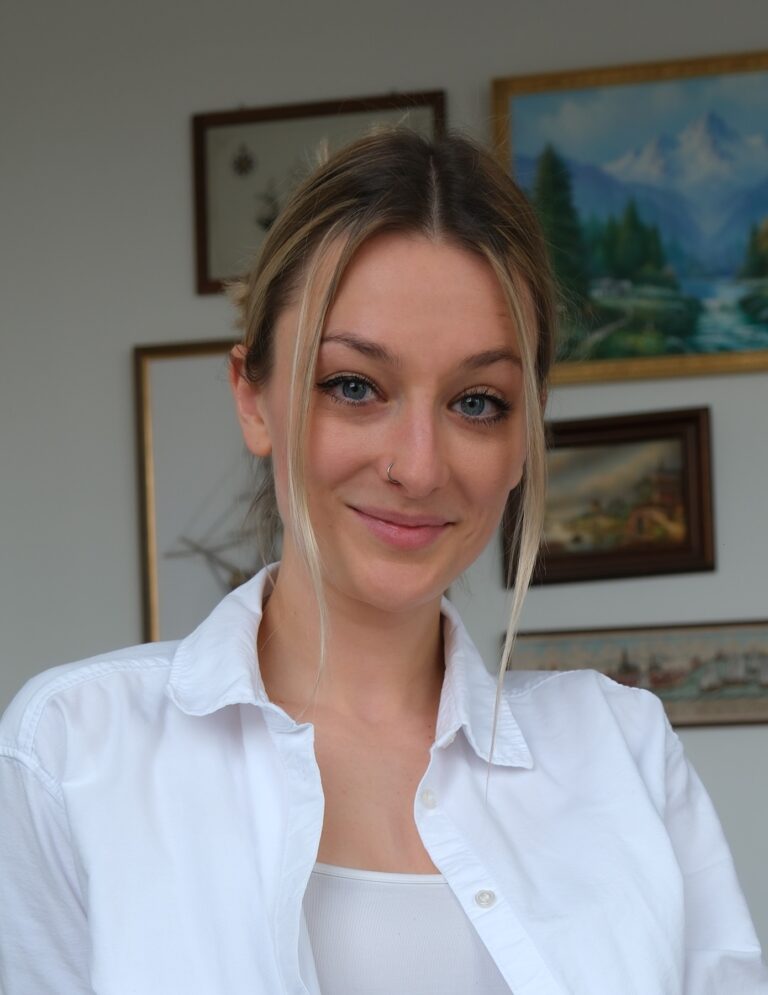
Tabea Hoffmann
Tabea Hoffmann is a PhD student at the University Groningen. With a background in psychology, she currently conducts interdisciplinary research on pro-environmental change. Tabea’s research focuses on developing theory and behavioural interventions that recognize the social and collective nature of climate action.
Nudging vs boosting: how to support financial multi-attribute decisions with the use of behavioral interventions
Have you ever considered what aspects people prioritize when making financial decisions like saving, investing, or getting insurance? This project aims to identify the key attributes that influence decision-making in financial contexts and explore ways to enhance these decisions through some of the most prominent behavioral interventions of recent times: nudging and boosting. The findings from this project could provide deeper insights into financial decision-making processes and help determine the efficacy of various behavioral strategies in altering behaviors. By doing so, we aim to broaden our understanding of nudging and boosting techniques and their application in public policy and business sectors.

Jakub Krawiec
Jakub M. Krawiec is a psychologist and researcher, pursuing PhD at SWPS University, Warsaw. He previously held visiting research engagements at the Policy Research Group, University of Cambridge and the Cultural Selection & Behavioral Economics Lab at Metropolitan University of Oslo. His freelance research collaborations include UNICEF, Bayer, and Warsaw Stock Exchange.
Building resilient societies: Cross-cultural implementation of the online suicide prevention tool iAlive
Addressing suicide, a significant global public health concern, requires empowering communities to identify and engage with individuals experiencing suicidal thoughts. With that aim, an evidence-based online tool iAlive was developed and evaluated in Slovenia. The main objective of this project is to implement and adapt the tool in different linguistic contexts and to evaluate its effectiveness by conducting a non-randomized controlled study.

Nina Krohne
Nina Krohne is a PhD candidate in the Suicidology and Mental Health doctoral program at the University of Primorska, Slovenia. Her doctoral research focuses on examining suicidality in women who experienced intimate partner violence, with an emphasis on resilience. She is completing her PhD as part of her research position at the University of Primorska, Slovene Centre for Suicide Research, where she is involved with various research and applied projects aimed at mental health promotion and suicide prevention.
